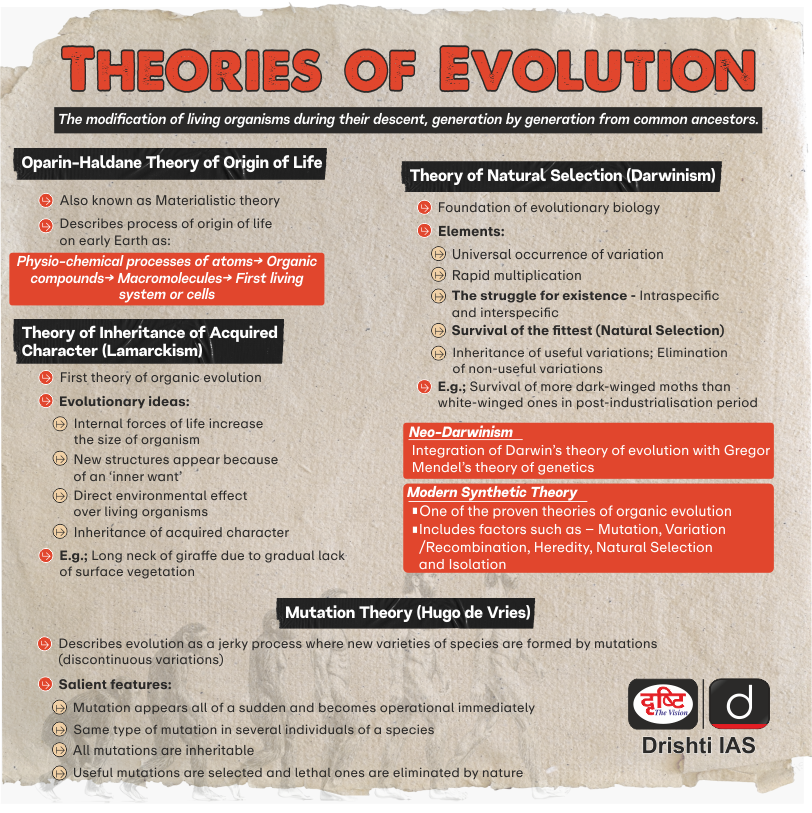Rapid Fire
Lamarckian Inheritance and Epigenetics Evolution
- 19 Jun 2025
- 2 min read
The recent discovery of heritable cold tolerance in rice plants through epigenetic changes marks a historic validation of Jean-Baptiste Lamarck’s theory that environmental influences can affect heredity — a concept once dismissed but now supported by modern science.
- Epigenetics refers to heritable changes in gene expression caused by external factors that switch genes on or off without altering the DNA sequence.
- Lamarck’s Theory (1809): It proposed that traits acquired during an organism’s lifetime through use, disuse, or environment could be inherited.
- It was dominant until Darwin’s natural selection (1859) and Mendel’s laws of inheritance disproved it.
- A study showed that exposing rice plants to cold triggered epigenetic changes in the gene, which conferred cold tolerance and was heritable for five generations.
- Scientific Challenges to Lamarck:
- Darwin’s Natural Selection (1859): It argued genetic variations (not acquired traits) drive evolution via "survival of the fittest."
- Weismann’s Experiment (1890s): Tailless mice produced normal-tailed offspring, disproving inheritance of acquired traits.
- Gregor-Johann Mendel: It showed genes (DNA) are the stable units of heredity, not environmental adaptations.
- Epigenetics Emerges:
- Royal Brink’s Maize Study (1956): It revealed that gene expression, not just DNA sequence, could be heritable, demonstrating non-DNA-based inheritance.
- Arthur Riggs’ Hypothesis (1975): It proposed epigenetic marks (chemical tags on DNA) could pass traits across generations without changing their DNA sequence. It is easier to change epigenetic marks than to mutate DNA.
| Read More: eDNA Challenging Genetics Principles |







